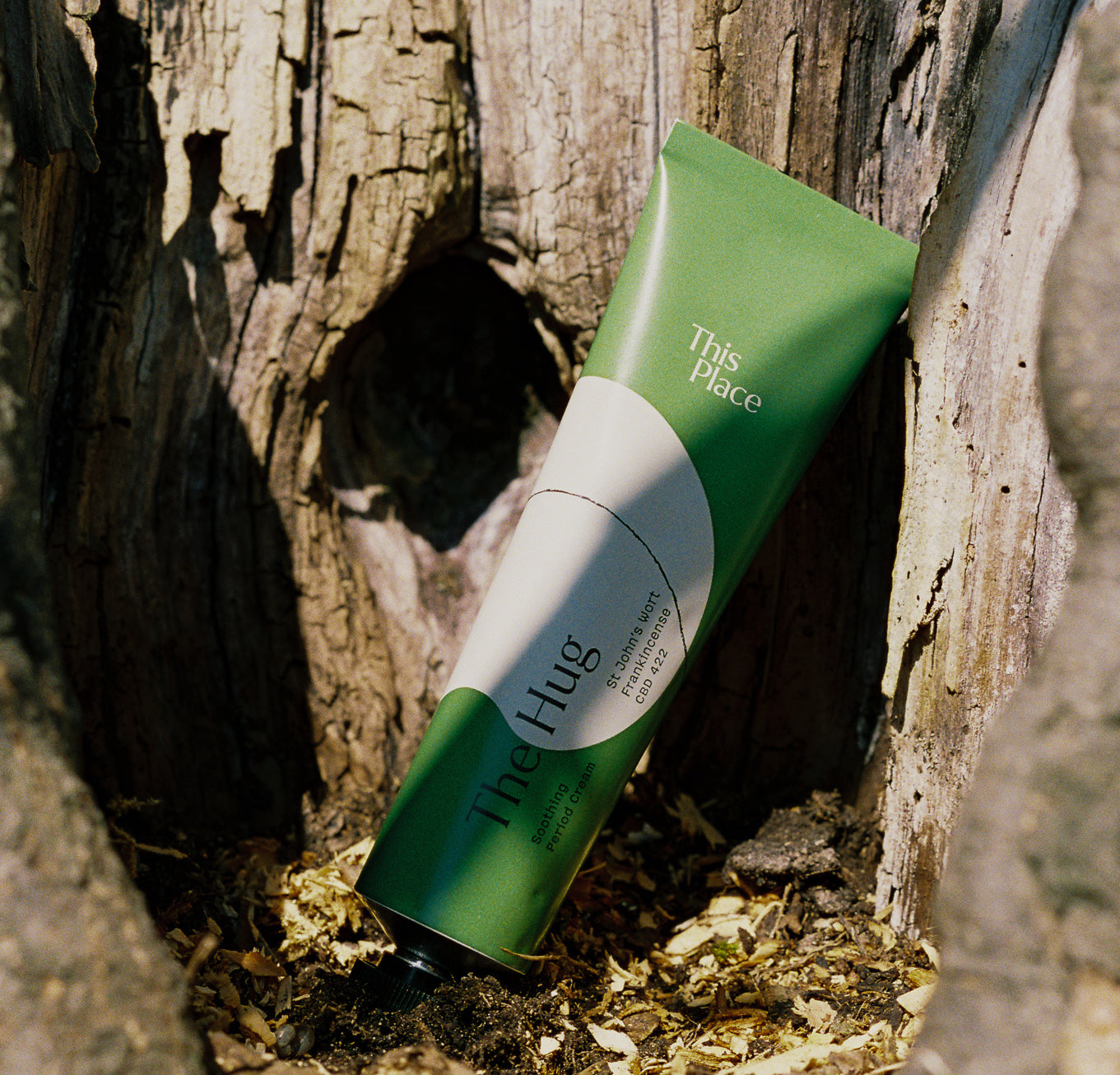If you are affected by premenstrual syndrome (PMS), it can have a considerable impact on your well-being in the days leading up to your period. There are a total of 200 known symptoms, ranging from physical discomfort and irritability to ravenous appetite and dizziness.
Fortunately, you don't have to simply accept this and in mild cases you may be able to achieve an overall improvement by adjusting your lifestyle and nutrition.
If, however, you suffer from severe symptoms that significantly affect your quality of life, you can speak to a doctor regarding treatment with the pill or other medications. This may be especially advisable for the more severe form, also known as premenstrual dysphoric disorder (PMDS).
The basics against PMS: What we can look out for
Often, we don't let things wind down until the symptoms are already there. However, studies suggest that stress may be partly responsible for the onset of PMS in the first place [1][2]. A more than good reason, therefore, to avoid excessive stress whenever possible.
And as we almost suspected, excessive alcohol consumption [3] and smoking [4] do not seem to be beneficial for PMS either. Here, too, we can take action to ensure better well-being during the second half of the cycle.
From endurance sports to breathing exercises
According to a study, regular endurance sports could lead to relief of symptoms. This was investigated in women who completed 20 minutes of endurance training three times a week over a period of 8 weeks. They experienced a significant reduction in PMS symptoms such as headaches, dizziness, or digestive problems [5].
Does the thought of regular exercise stresse you out rather than relax you? Then you could also consider doing yourself some good with a gentle, yoga practice or recurring meditation. In one study, a program of mindfulness-based stress reduction significantly reduced psychological symptoms of PMS in particular, such as depressed mood, anxiety, and irritability, according to the researchers [6].
Our diet: vitamins and minerals
"Let food be your medicine and medicine be your food!" What Hippocrates proclaimed 2,400 years ago may still be relevant today: women who consume enough riboflavin (vitamin B2) in their diets, among other vitamins, appear to be less likely to be affected by PMS [7].
Thus, women who consume many foods containing riboflavin could reduce their risk of experiencing PMS symptoms by up to 35 percent. This would require 1-2 servings of fortified cereals or 6-7 servings of cow's milk, soy milk, spinach, or red meat daily, according to the researchers.
In addition, there is evidence that adequate intake of calcium may also reduce the risk of symptoms during the luteal phase [8]. This could be related to the fact that estrogen, among other things, regulates calcium metabolism [9] - a hormone whose concentration keeps changing throughout the cycle.
PMS: Treatment through medication
We can also influence a few factors ourselves. But a severe episode of PMS should not be underestimated as it can lead to drastic limitations in the quality of life.
Among various antidepressants, serotonin reuptake inhibitors have proven particularly effective here [10][11].
Another option for treating PMS is the birth control pill. After all, the syndrom only occurs in the phase between ovulation and menstruation. Because the pill suppresses ovulation, it can also relieve PMS symptoms in some women.
If you suffer from severe PMS symptoms, you should discuss with your doctor which medication might be right for you.
Body and psyche in harmony
A healthy lifestyle can be helpful in combating the discomfort before the menstruation. But the idea is not that we should take every single point to heart ( so that we may be more stressed at the end than before), but rather, the focus should be on what we can best integrate into our daily lives.
Maybe you like to exercise already and have somehow lost sight of that? Or you would like to include more enriched grains in your diet? Maybe it's the breathing exercises for which you schedule a few minutes at a fixed time of day. What is right and important is only what you feel like doing and what you can implement without facing major obstacles.
Regardless, for which you decide: You can in any case keep The Hug by your side. This soothing period cream pampers you with natural ingredients. Maybe you can combine it with a short massage? After all, it feels twice as good in the second half of the cycle anyway. Treat yourself to a small gesture for more well-being from you to you.
Source:
[1] A study of impact of stress: examinations on menstrual cycle among medical students
[2] Prior stress could worsen premenstrual symptoms, NIH study finds
[3] Premenstrual syndrome and alcohol consumption: a systematic review and meta-analysis https://bmjopen.bmj.com/content/bmjopen/8/3/e019490.full. pdf
[4] Tobacco consumption and premenstrual syndrome: A case-control study https://www.ncbi.nlm.nih.gov/pmc/articles/PMC6588233/
[5] The effect of 8 weeks of aerobic exercise on severity of physical symptoms of premenstrual syndrome: a clinical trial study
https://www.ncbi.nlm.nih. gov/pmc/articles/PMC5984430
[6] Mindfulness-based Stress Reduction as a Promising Intervention for Amelioration of Premenstrual Dysphoric Disorder Symptoms
https://www.ncbi.nlm.nih. gov/pmc/articles/PMC4651211/
[7] Dietary B vitamin intake and incident premenstrual syndrome
https://www.ncbi.nlm.nih.gov/pmc/articles/PMC3076657/
[8] Calcium carbonate and the premenstrual syndrome: effects on premenstrual and menstrual symptoms. Premenstrual Syndrome Study Group
https://pubmed.ncbi.nlm.nih.gov/9731851/
[9] Micronutrients and the premenstrual syndrome: the case for calcium
https://pubmed.ncbi.nlm.nih. gov/10763903/
[10] Differential response to antidepressants in women with premenstrual syndrome/premenstrual dysphoric disorder: a randomized controlled trial
https://pubmed.ncbi.nlm.nih.gov/10530636/
[11] Fluoxetine in the treatment of premenstrual dysphoria. Canadian Fluoxetine/Premenstrual Dysphoria Collaborative Study Group
https://pubmed.ncbi.nlm.nih.gov/7739706/
[12] Treatment of premenstrual syndrome by spironolactone: a double-blind, placebo-controlled study

